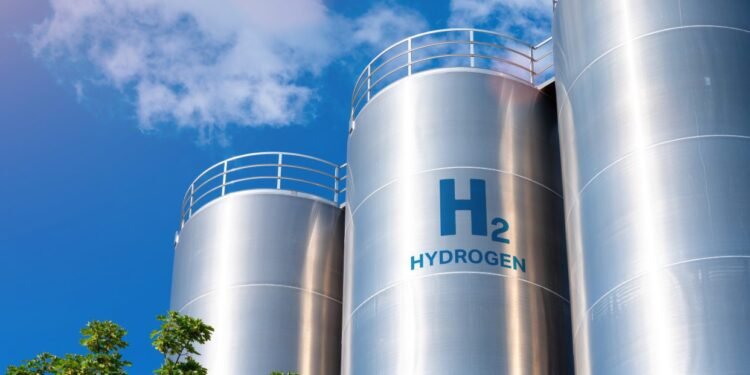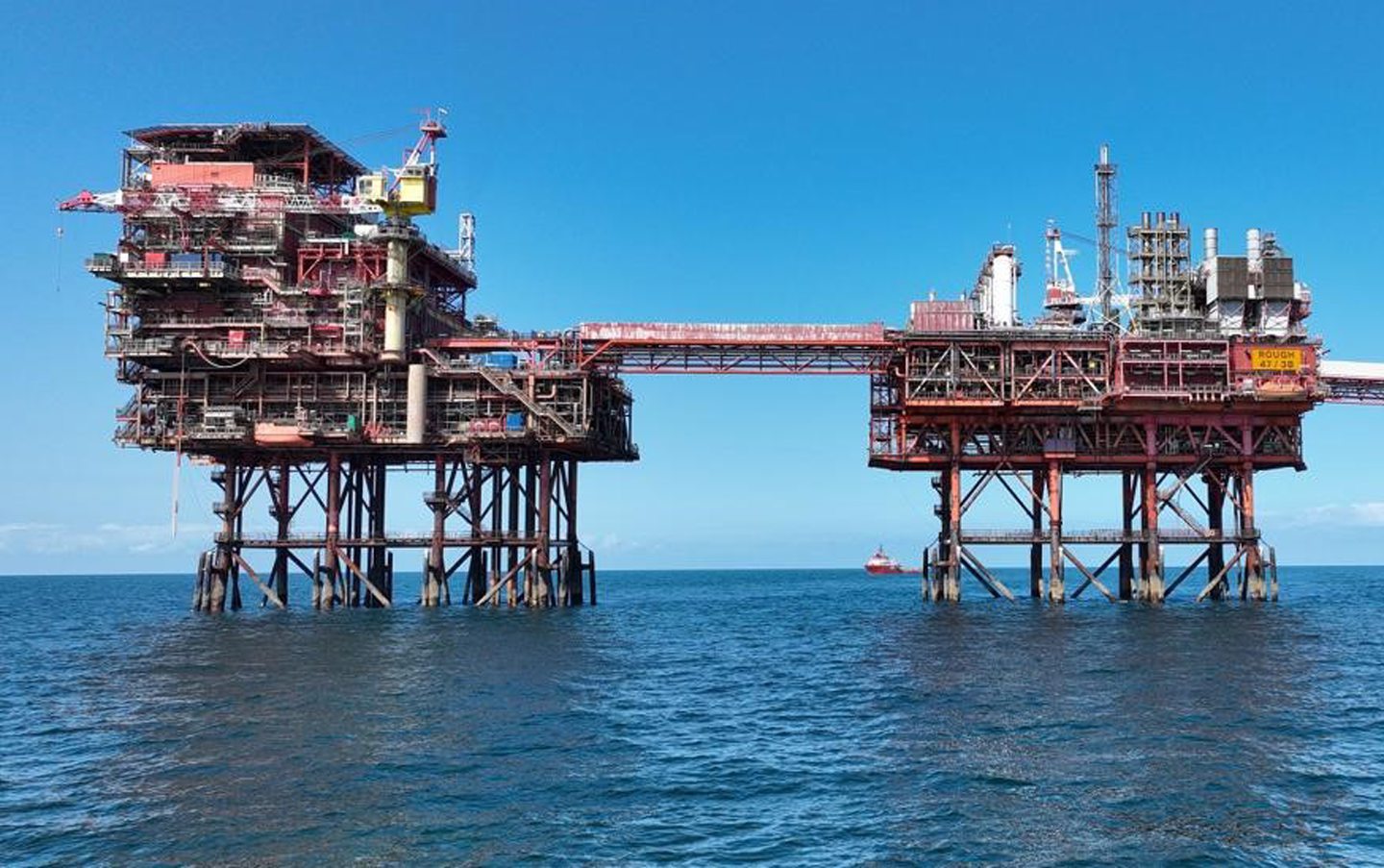An Aberdeen University-led study exploring the use of a depleted gas field in Scotland to store hydrogen has raised concerns about the future viability of similar projects.
The research concluded the Cousland gas field in Midlothian fails to meet the criteria for safe subsurface hydrogen storage and recommended it should not be used.
Located near Dalkeith, Cousland was decommissioned in the 1960s and other academic studies had identified it as a potential contender for large-scale hydrogen storage.
Hydrogen storage is a crucial factor for the development of a hydrogen fuel economy as part of meeting UK net zero ambitions.
A report by the Royal Society estimated the UK could need as much as 100TWH of hydrogen capacity by 2050.
While hydrogen can be safely stored in rock salt caverns, there are no onshore salt deposits located within Scotland.
As a result, some studies proposed using Scotland’s depleted onshore and offshore gas fields for hydrogen stores.
Cousland fails criteria for safe storage
However, study leaders Professor John Underhill from the University’s Centre for Energy Transition and Malcolm Butler at the UK Onshore Geophysical Library (UKOGL) found numerous barriers to using the Cousland site for hydrogen storage.
These barriers include a lack of evidence of the nature of the subsurface sedimentary rocks and the structure of the field.
After analysing existing geological data from the UKOGL, the study concluded Cousland fails to meet the criteria for safe storage, is a poor site for a hydrogen repository and should not be considered.
The findings could call into question the viability of using similar decommissioned onshore sites for hydrogen storage due to concerns over potential risks to the environment and surrounding communities from hydrogen leaks.
The study could also have implications for hydrogen storage plans at similar offshore sites, including Centrica’s Rough field in the North Sea.
The issue of gas storage is a key concern for the UK government’s net zero ambitions, with a recent report finding a lack of storage and supply flexibility could leave the country’s gas system “exposed”.
‘Forensic’ analysis of hydrogen storage needed
Professor Underhill said the study makes clear the need for an independent evaluation of subsurface sites proposed for use in the energy transition.
“In this particular case, it emphasises the storage challenges associated with porous media (materials) in general and in subsurface sites in onshore areas in particular,” he said.
“If a site like [Cousland] was to be used for hydrogen, it did leak and the gas built up in a confined space, it is highly flammable when mixed with small amounts of ordinary air and more so than methane (natural gas) that currently provides domestic gas supplies.
“So we need to be very cognizant of the safety aspects.”
Unlike carbon dioxide and other gases, Professor Underhill said hydrogen presents a more difficult challenge when it comes to storage.
“Hydrogen has been proposed as a possible green energy vector in the transition, but it forms a small, nimble molecule and is very difficult to contain,” he said.
“It can be stored safely in subsurface geological sites, but so far these have largely been limited to man-made hermetically sealed soluble caverns in halite (rock salt) deposits.”
“However no natural hydrogen has been discovered in any existing onshore or offshore fields in the UK, which raises the question of whether it was once there and leaked, and crucially if it would stay underground if it was injected into a subsurface site.”
Hydrogen for net zero
While the Scottish Government has ambitions to develop a hydrogen economy as part of its net zero ambitions, Professor Underhill said the capacity to store it needed more consideration.
“If we accept the premise that hydrogen is part of the green solution and we need storage, without any salt deposits onshore in Scotland you have to have an alternative repository,” he said.
“Given the scale of the hydrogen business as it currently is, we should focus on decarbonizing it and we have enough onshore salt deposits in other parts of the UK for that to be accommodated.”
While the UK hydrogen sector has adequate salt cavern storage for its current needs in areas of England including the Humber, Yorkshire and Cheshire, Professor Underhill said if the sector grows more storage sites will need to be identified.
“If it was to be scaled up, you would then need to look at alternatives like depleted fields, like town gasometers or use of the offshore [sites], where salt deposits occur.
“But it will incur that extra expense and cost [for offshore], and for the porous media, it’s unproven. The salt deposits are proven and used routinely in Germany, but you would need to a major exploration campaign in the North Sea to determine where the best areas were.”
Professor Underhill said the UK needed a “forensic critical analysis” of all potential sites to fully examine the feasibility of future hydrogen storage.
He added he didn’t believe there was enough awareness of the issue within the UK and Scottish governments, and said more dialogue and collaboration is needed.
Scope for AI deployment
In addition, artificial intelligence (AI) and machine learning could prove useful in speeding up the process of identifying suitable storage sites as well as allocating limited seabed resources.
With oil and gas, offshore wind, fishing, hydrogen, CCUS, unexploded ordinance and environmental considerations among a wide range of considerations for allocating offshore space in the North Sea, Professor Underhill said detailed planning is essential.
“A proper marine spatial plan that takes all these things into account is really important to do, otherwise there is overlap and inevitable competition for offshore areas,” he said.
“Unless we determine which technology has primacy in any given area, conflict will arise, the best use of the sea bed and subsurface below will not happen, and we will not meet net zero targets.
“Use of data and AI and visualisation is really important in this space because given the data that’s available and in the public domain via the NSTA’s National Data Repository (NDR) and UKOGL, effectively, anyone or everyone could interrogate it and we could deploy machine learning, AI data and AI tools and methods to at least screen [solutions] and then have the human expertise and investigate what has come out of this.
“That could help us, at least in the preliminary stage and to speed things up.”
Recommended for you




 © Supplied by Centrica
© Supplied by Centrica © Supplied by Aberdeen University
© Supplied by Aberdeen University © Supplied by Wrightbus
© Supplied by Wrightbus






